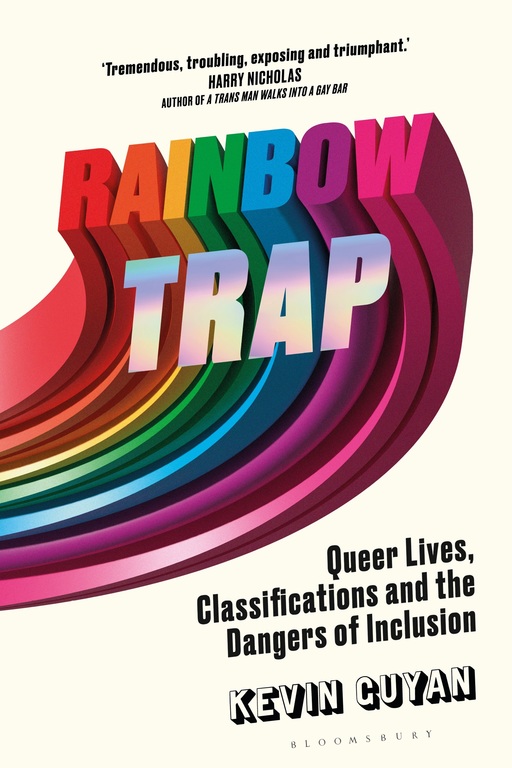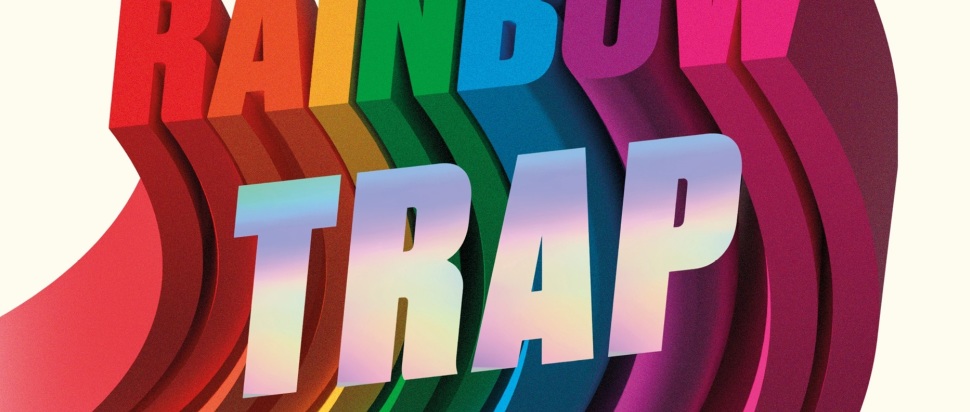The Category Is: A first read of Kevin Guyan’s Rainbow Trap
The politics of classifications and LGBTQ lives are ever-complex – and marriage certificates are just the start. In Rainbow Trap, Kevin Guyan reveals how the fight for LGBTQ equalities in the UK is shaped – and constrained – by everyday classifications
I hadn’t given much thought to the intersection of classifications and LGBTQ lives until my wedding day. In fact, I had never imagined the possibility of getting married. I grew up in the Scottish city of Aberdeen and coming out as gay in the late 2000s felt like putting myself in a box outside the system that sorted everyone else I knew. Gone were the expected milestones of wife, children and house in the suburbs. Nobody knew (myself included) what life-defining moments were now on my horizon. I went to university, my on-ramp for a queer life, and quickly realised that existing outside the main sorting system meant the parties were more fun, the relationships more intense and the outfits far more wild.
So it was a peculiar afternoon to find myself in the back seat of a London Black Cab squeezed between my mum, dad and soon-to-be husband just seven months after same-sex marriage was legalised in England and Wales. As we pulled up to the side of the road, I slipped cash under the plastic guard and asked Andrés, "Are you ready?" He focused his dark eyes on me and replied, "Let’s go." I swung open the door and excitedly stepped out into the leafy square. We felt hopeful that social attitudes towards men marrying men and women marrying women were moving in a more positive direction. Andrés and I were being invited into a system that had, until recently, kept people like us on the outside.
On arrival, we were ushered into a wood-panelled back room to meet the Registrar for our ceremony. We could hear the excited chatter of friends and family as they took their seats in the room next door. Younger me had never rehearsed this moment but I felt ready and excited for the future that lay ahead. Yet, looking through the documents in front of us, something seemed wrong. The olive-green form that would become our marriage certificate asked us to write our names, ages and whether we were previously married – questions we had expected to answer. But, at the far edge of the document, were two boxes for the ‘Rank or profession’ of our fathers. Men marrying men writing about the employment history of men. It instantly became clear some archaic requirements of the system remained stubbornly in place.
In sharing vows and exchanging rings, we were about to embark on something that changed who we were as gay men – to ourselves, each other and the wider world. Although our ceremony meant something to us, I was unsure what our actions said about the political and social possibilities of queer lives. In 2012, the cultural historian Lisa Duggan described marriage equality as "the singularly representative issue for the mainstream LGBT rights movement, often standing in for all the political aspirations of queer people."
In the late 1990s – when same-sex marriage remained an unlikely possibility among campaign groups in the UK and the United States – gay cultural critic Leo Bersani lambasted the pursuit of marriage and referenced Michel Foucault’s hope that homosexual love could bring about 'new alliances’ and offer a blueprint for a new ‘way of life’. For Duggan, Bersani and Foucault, rather than expanding our horizons, marriage impoverished our ability to imagine LGBTQ lives that depart too radically from the straight, status quo. With our friends and family waiting patiently for us to take our spots at the top of the aisle, what possibilities (or new ‘way of life’) had Andrés and I abandoned to gain access to a system that, just a few months prior, did not want us?

Andrés and I now live in Edinburgh, Scotland and – over the past decade – I have worked as a researcher investigating how UK organisations, businesses and workplaces respond to inequities associated with gender, sex and sexuality. You are likely familiar with DEI interventions such as unconscious bias training, staff networks, pronoun badges, celebration months, allyship schemes and rainbow lanyards. While it felt as if more people than ever were talking about DEI, I grew sceptical as to whether the volume of conversation was having a positive impact on LGBTQ communities suffering the most as a result of badly designed systems. Time and time again I encountered good-intentioned individuals who refused to consider how bigger questions of history, politics and power limited what inclusive interventions could actually achieve. Eyes rolled when I questioned whether ‘debate’ will resolve opposition between trans communities and anti-trans campaign groups or if we really need yet another staff survey to capture more data about the negative experiences of queer employees.
My most heated arguments did not involve fascists on the far right or those burning the progress flag at a Pride parade. They were white, middle-class liberals – people like me. Yet, liberal faith in DEI fixes was not matched by evidence of the world around us: the UK has plummeted in international LGBTQ rankings, the number of reported hate crimes against queer communities has rocketed and the Council of Europe singled out the UK (alongside Hungary, Poland, Turkey and Russia) for specific condemnation in its report on attacks to LGBT rights. I also sensed an insidious thread running through calls for more of the same, an unsaid discomfort with the direction of change and suggestion that the situation for queer people was ‘good enough’. What I saw among those working in the DEI industry was a dawning realisation that access to same-sex marriage, basic legal protections and improved visibility was the start rather than the end for this queer political project. Queer people wanted more. And well-meaning straight people stood in the way.
This is an edited extract from Kevin Guyan’s Rainbow Trap: Queer Lives, Classifications and the Dangers of Inclusion (Bloomsbury, 2025). Guyan is a Chancellor’s Fellow at the University of Edinburgh and Director of the Gender + Sexuality Data Lab.
Rainbow Trap is out with Bloomsbury now
